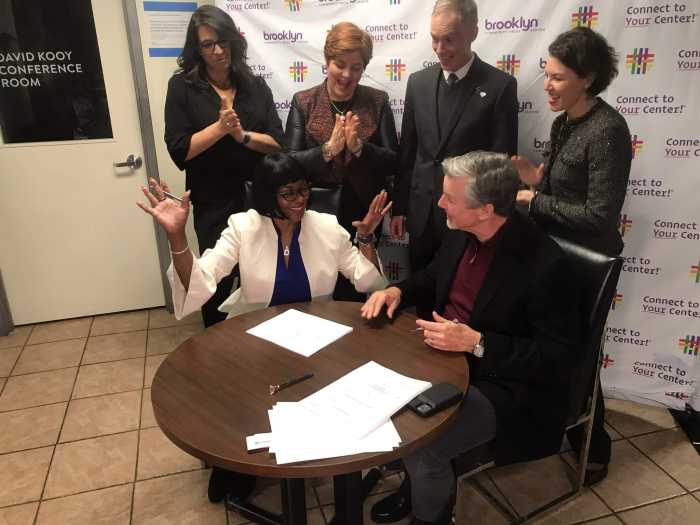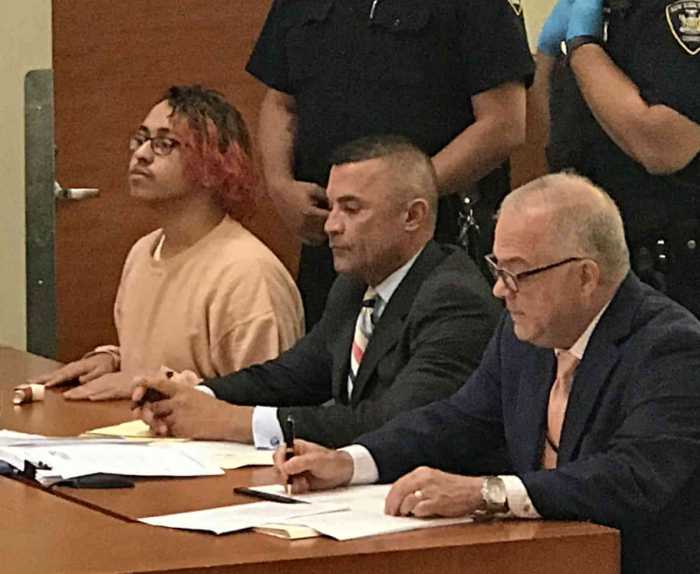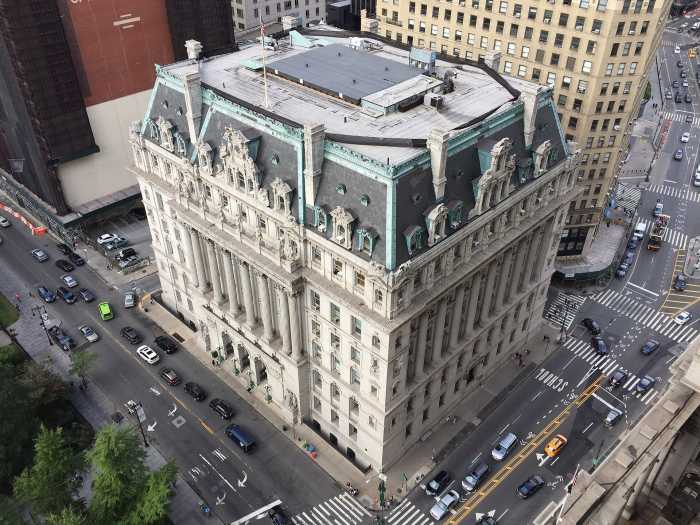BY WILLIAM A. SMITH | Numbers released last week from the Centers for Disease Control and Prevention indicate that we are experiencing a major explosion in sexually transmitted diseases (STDs) across the country. At the same time, STD clinics in too many communities have been permanently shuttered due to budget cuts while incorrect assumptions are being made that the expansion of insurance coverage makes publicly funded STD clinics unnecessary. Thankfully, in New York City, the health department is going through a process of renovating STD clinics, doubling down on ensuring they don't just survive, but that they become centers of excellence providing the highest quality sexual health care to patients in need.
The Chelsea STD Clinic is well known to be a center for crucial HIV and STD services for New Yorkers and especially the LGBTQ community; its recent closure has made headlines, and community protests and frustrations have been aired and heard by city officials. But the story that has been buried under those headlines are the precautions that were taken to avoid the eventual clinic closure, the diligent efforts to temporarily redirect services with available resources, and the great need for clinic renovations to provide higher quality health services to the community it serves.
Chelsea Clinic is one of nine New York City Department of Health and Mental Hygiene (DOHMH) STD clinics in the city that provide free or low-cost STD and HIV services. It is the latest in a series of STD clinic renovations by the DOHMH to improve patient experience and clinical services.
Anyone who has visited the Chelsea Clinic in recent years knows that it had been in dire need of major renovation and additional space for its growing patient needs. However, in knowing the importance of the Chelsea clinic as it serves a population with a high burden of HIV and other STDs, DOHMH initially developed renovation plans that would allow for clinic services to continue in one end of the clinic as the other end was being restored.
An unfortunate and unexpected obstacle to this initial plan appeared when construction began and conditions for employees were found to be not workable. Grievances were filed and the DOHMH was forced to quickly alter its plan to address these grievances for the safety of the clinic staff and the patients. As a result, the DOHMH had to close the STD clinic and work quickly to ensure that Chelsea’s vital services could be re-directed and remain available to patients.
The resulting challenges that DOHMH faced in relocating its services is a perfect example of how the public health infrastructure is hanging on by a tenuous thread. DOHMH made significant efforts to relocate clinic activities to another location in the Chelsea neighborhood (such as renting temporary space), but, with a limited budget and resources, was not successful.
In addition to working quickly to notify patients, providers, elected officials, and community-based organizations of the clinic closure, DOHMH developed a comprehensive plan for accessing services during the renovation:
Effective March 31, 2015, DOHMH relocated its Chelsea services temporarily to Riverside Health Center, where they will remain during the course of the renovation.
DOHMH maintains a presence with its “concierge van” located at the southwest corner of 28th Street and Ninth Avenue, which currently operates five days/ week (Monday-Friday), 8:30 a.m.-4:30 p.m. NYC DOHMH concierge van staff can guide clients to complete, low/ no cost STD and HIV testing and treatment services housed in the Chelsea community, or at an adjacent mobile van operated by a community health provider that provides on-site STD and HIV care, or at one of the other eight DOHMH STD clinics located throughout the city. Cognizant of winter, the DOHMH is actively looking to transfer the concierge van services to a building facility.
For many years, DOHMH has funded STD screening at the Callen-Lorde Community Health Center, Gay Men’s Health Crisis (GMHC), and the Asian Pacific Islander Coalition on HIV/ AIDS (APICHA). These activities will continue, and have recently been augmented: GMHC is now funded to provide additional STD screening.
Sites already funded by DOHMH for sexual and behavioral health activities will receive additional funding to continue to provide full STD screening, PEP, PrEP evaluation, and treatment for STD for the uninsured near the Chelsea Clinic site.
There is no denying that this is not an ideal solution, but with the unexpected closure DOHMH made sustainable decisions that fit within the scope of its budget and capacity.
As the national organization representing public health department STD programs and their clinics across the country, we stand behind the decisions made by the New York City DOHMH and, in particular, in ensuring that STD clinics like the Chelsea Clinic are being modernized to provide the absolute best care when such clinics in too many other cities are being shuttered for good.
William A. Smith is the executive director of the National Coalition of STD Directors.




































